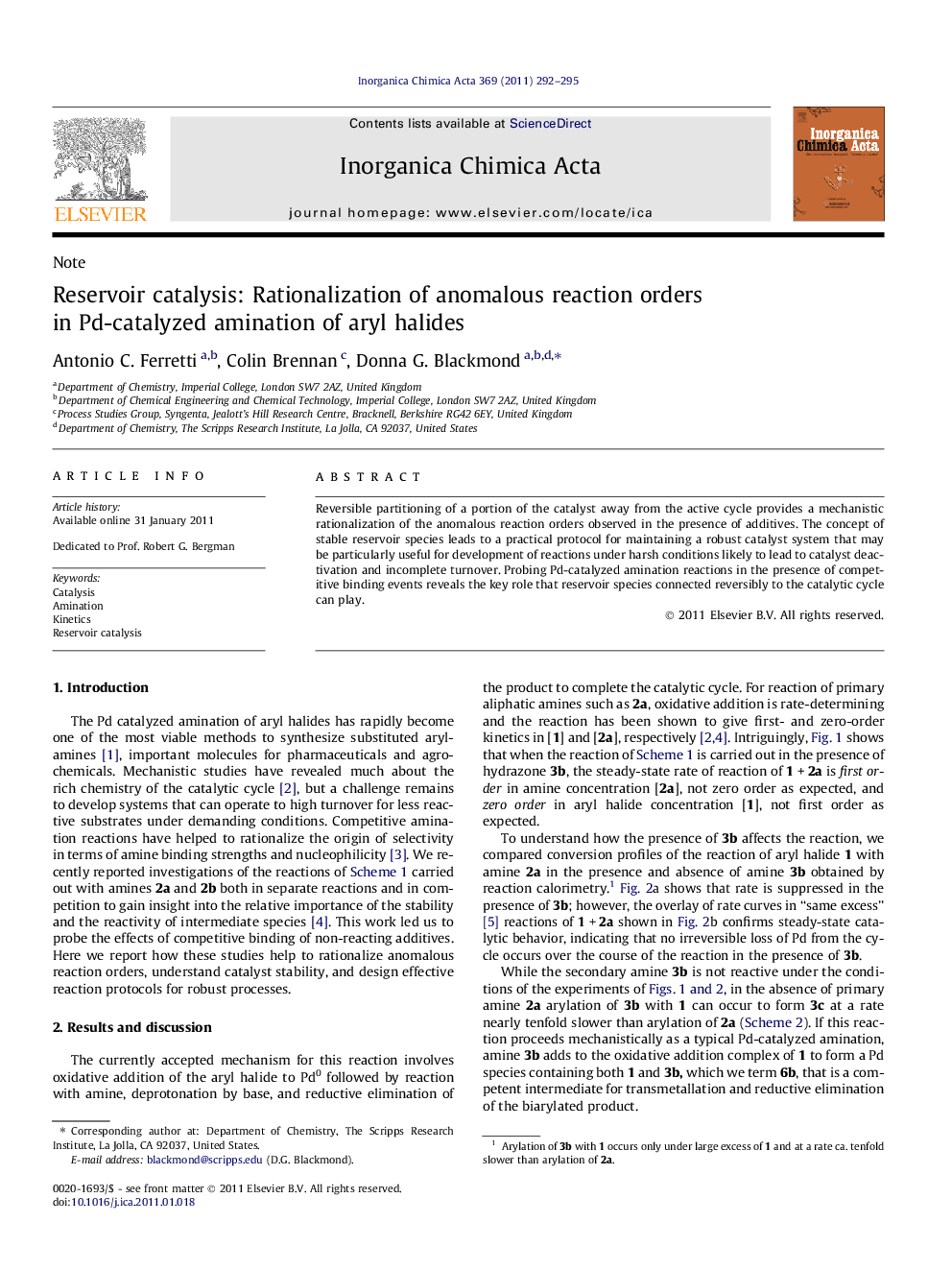| کد مقاله | کد نشریه | سال انتشار | مقاله انگلیسی | نسخه تمام متن |
|---|---|---|---|---|
| 1307692 | 975149 | 2011 | 4 صفحه PDF | دانلود رایگان |

Reversible partitioning of a portion of the catalyst away from the active cycle provides a mechanistic rationalization of the anomalous reaction orders observed in the presence of additives. The concept of stable reservoir species leads to a practical protocol for maintaining a robust catalyst system that may be particularly useful for development of reactions under harsh conditions likely to lead to catalyst deactivation and incomplete turnover. Probing Pd-catalyzed amination reactions in the presence of competitive binding events reveals the key role that reservoir species connected reversibly to the catalytic cycle can play.
Anomalous reaction orders observed in Pd-catalyzed amination are rationalized by the reversible partitioning of the catalyst into a stable, off-cycle reservoir. A practical protocol for maintaining a robust catalyst system under harsh conditions is presented. Competitive binding events are used as a mechanistic probe.Figure optionsDownload as PowerPoint slideResearch highlights
► Anomalous reaction orders observed in Pd-catalyzed amination are rationalized by the reversible partitioning of the catalyst into a stable, off-cycle reservoir.
► A practical protocol for maintaining a robust catalyst system under harsh conditions is presented.
► Competitive binding events are used as a mechanistic probe.
Journal: Inorganica Chimica Acta - Volume 369, Issue 1, 15 April 2011, Pages 292–295